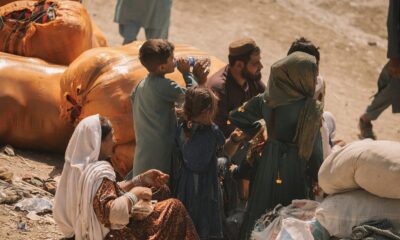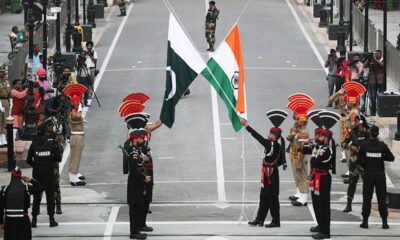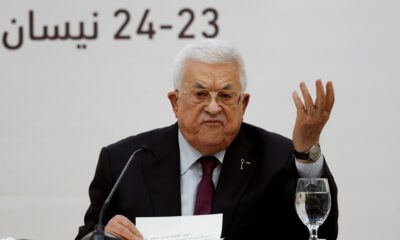Latest News
4,000 Children from Syria, Afghanistan, Morocco sought protection in Bulgaria in 2024: UNICEF
More than 473 million children – more than one in six globally – live in conflict-affected areas, according to the report.
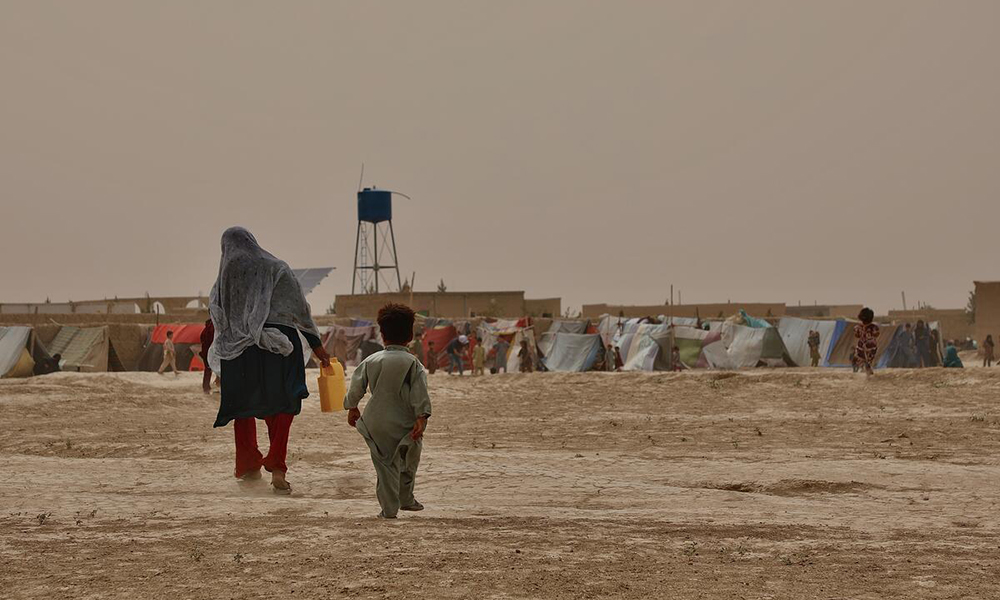
In 2024, 4,000 children from Syria, Afghanistan and Morocco and 60,000 from Ukraine sought protection in Bulgaria from military conflicts, raging in their native countries, according to a UNICEF report.
The report states that 2024 was “one of the most disastrous years for children in conflict” in the organization’s history.
According to UNICEF data for 2024, more than 12,164 people mostly from Syria, Afghanistan and Morocco sought international protection in Bulgaria, of which nearly 4,000 were children, and 64% or 2,569 of them were unaccompanied.
Since the beginning of the war in Ukraine until December 18 2024, 201 389 people received temporary protection in Bulgaria, of whom nearly 60,000 were children. To date, there are just over 70,000 refugees from Ukraine in Bulgaria and 40% of them are children.
Military conflicts have had a devastating and unprecedented impact on the lives of children worldwide in 2024, according to the UNICEF report, which reviews recent data and global trends.
More than 473 million children – more than one in six globally – live in conflict-affected areas, according to the report, which also reports currently the largest number of conflicts since World War Two. The percentage of children living in areas of conflict has doubled, from about 10% in the 1990s to almost 19% today, UNICEF warns.
By the end of 2023, 47.2 million children had been displaced by conflict and violence, with trends through 2024 pointing to further displacement due to deepening conflict, including in Haiti, Lebanon, Myanmar, the State of Palestine and Sudan.
Children make up 30% of the global population, but on average account for about 40% of refugees and 49% of IDPs. In countries affected by armed conflict, more than a third of the population lives in poverty (34.8%), compared to just over 10% in countries not affected by conflict, the report says.
“Every child has the right to safety, protection, care and support, regardless of immigration status, country of origin, gender, race or religion. Every child is first and foremost a child. Refugee children need comprehensive care, access to education, healthcare, legal assistance and psychosocial support. UNICEF will continue to support children, as well as responsible institutions, in their efforts to provide effective care and protection to refugee children,” said Christina de Bruin, UNICEF Representative in Bulgaria.
“By virtually every measure, 2024 was one of the most devastating years in UNICEF’s history – both in the number of child victims and the extent of the catastrophic impact on their lives,” said UNICEF Executive Director Catherine Russell. “A child growing up in a conflict zone is much more likely to be out of school, malnourished or forced to leave home – too often repeatedly – than a child living in peaceful areas. This should not be the new normal. We cannot allow an entire generation of children to become innocent victims of the world’s unchecked wars,” says Russell.
The Fund warns that access to education is often cut off in conflict zones and more than 52 million children are out of school in conflict-affected countries. Children in the Gaza Strip and a significant proportion of children in Sudan have missed more than a year of school, while in countries such as Ukraine, the Democratic Republic of Congo and Syria, schools have been damaged, destroyed or converted for other purposes, leaving millions of children without access to education. The destruction of educational infrastructure and the insecurity surrounding schools have worsened the already dire situation of children’s education in these regions. The report states that malnutrition among children in conflict zones has also reached threatening proportions. Conflict and armed violence continue to be the main causes of hunger in many hotspots because of food supply problems, increased population displacement and impediments to humanitarian access. In 2024, more than half a million people in five conflict-affected countries are expected to be affected by mass hunger, the fifth most extreme phase of a food crisis, according to the report.
Conflict also has a devastating effect on children’s access to life-saving health care. About 40% of unvaccinated and under-vaccinated children live in countries that are partially or fully affected by conflict. Due to lack of safety, food and health services, these children are often most vulnerable to diseases such as measles and polio, UNICEF adds, warning that the impact on children’s mental health is also huge. Experiencing violence and the loss of loved ones provokes depression, nightmares and sleep difficulties, aggressive behaviour or self-isolation, sadness and fear.
2024 became the deadliest year in the history of humanitarian organizations, with 281 aid workers killed globally, surpassing previous records, UNICEF said.
UNICEF calls on all parties to conflicts and those who have influence over them to take decisive action to end the suffering of children, to ensure that their rights are respected and to uphold their obligations under international humanitarian law, the organization said in a statement on the report.
Latest News
Registered Afghan refugees must return by June 30 or face deportation: Pakistani official
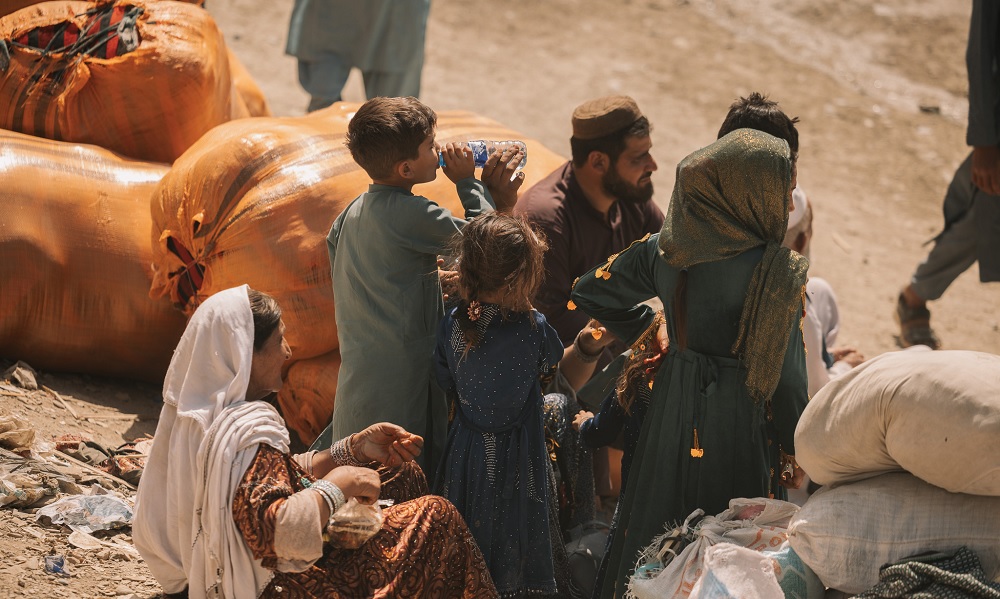
Pakistan’s State Minister for Interior Affairs Talal Chaudhry has confirmed that Pakistan has set a June 30 deadline for registered Afghan nationals, including Proof of Registration (PoR) holders, to voluntarily return to Afghanistan.
“After this, he said that formal deportation procedures will begin. Afghan refugees were and remain our guests. They are being sent back with full dignity and respect,” he told Geo News.
Pakistan is currently deporting illegal immigrants and Afghan Citizen Card holders, with thousands returning to their country daily.
Meanwhile, UNHCR’s spokesperson Qaisar Khan Afridi stressed that deportations must be voluntary, not forced.
Afridi also highlighted that the UNHCR has received complaints of arrests in parts of Punjab, even involving some documented Afghan refugees.
However, Chaudhry categorically denied such incidents, stating that no such case has been officially reported and that previous allegations turned out to be fake news upon verification.
He clarified that Afghan refugees who fail to leave within the stated deadlines are not immediately deported, but are first notified, and then taken to refugee holding centres where they are provided food, shelter, security, medical aid and travel facility.
“This is a structured, humane process. There is no chaos. Our hospitality has always been there for Afghan citizens,” Chaudhry emphasised.
Latest News
Afghanistan’s trade with India through Pakistan’s Wagah comes to halt as border closed
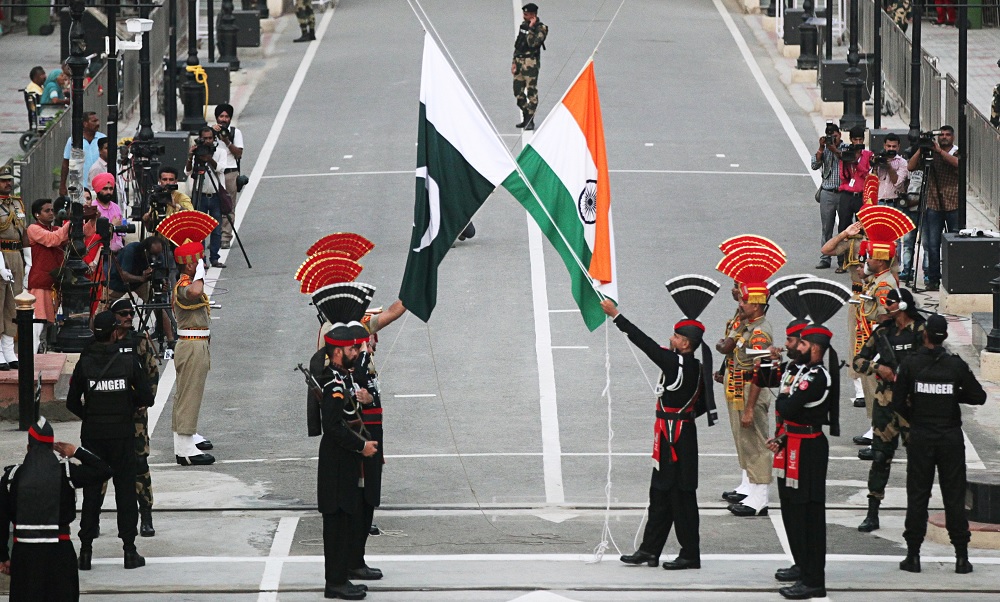
With Pakistan suspending all trade with India, including to and from any third country through its territory, Afghanistan’s trade with India via the Attari-Wagah border has also come to a halt.
The latest tension between Pakistan and India was triggered by the killing of 26 men at a popular tourist destination in Indian Kashmir on Tuesday, in the worst attack on civilians in India since the 2008 Mumbai shootings.
Hindustan Times said on Friday that suspension of trade will affect the local economy, especially small traders and industries, whose livelihood largely depends on this trade.
Located around 28 kms from Amritsar city, this is the only permissible land route allowed for trade between India and Pakistan and crucial for imports from Afghanistan, according to the newspaper.
In August 2019, when India revoked Kashmir’s special status, Pakistan ceased all trade relations with India. The neighbouring country also barred India from exporting goods to Afghanistan, though the import of Afghan goods, such as dry fruits, remained normal, even after the Islamic Emirate took control over the country.
Latest News
Afghan delegation to participate in Iran’s international expo

Iranian officials have announced that a 200-member delegation, comprising Afghan government officials and private sector representatives, will attend the 7th International Exhibition of Iran’s Export Capabilities.
Officials from the Islamic Emirate, meanwhile, consider the presence of Afghan traders at this exhibition to be significant, stating that showcasing domestic products will help promote and market Afghan goods.
Abdul Latif Nazari, Deputy Minister of Economy, said: “Economic cooperation between the private and public sectors of Afghanistan and Iran is in the interest of both countries.”
“The visit of the high-ranking delegation of the Islamic Emirate to Iran can play a vital role in expanding economic and trade exchanges between the two countries,” he added.
In addition, Afghanistan Chamber of Commerce and Investment (ACCI) said that 80 booths have been allocated to Afghan traders at the exhibition, where agricultural products, precious stones, and other Afghan goods will be showcased.
Several experts also stated that Afghanistan’s participation in regional and international exhibitions is important and can lead to stronger economic ties with other countries.
This comes as Iran remains one of Afghanistan’s key economic partners, with annual trade volume between the two nations exceeding $3 billion.
-

 International Sports3 days ago
International Sports3 days agoIPL 2025: Robo-Dog ‘Champak’ explained
-

 Latest News4 days ago
Latest News4 days agoAriana Afghan Airlines increases flights to China
-

 World4 days ago
World4 days agoPentagon chief Hegseth shared sensitive Yemen war plans in second Signal chat, source says
-

 Latest News3 days ago
Latest News3 days agoAfghan-American appointed to lead US policy on Afghanistan
-

 Latest News4 days ago
Latest News4 days agoChina invites various Afghan delegations to attend Shanghai forums
-
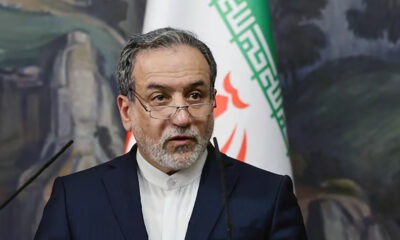
 Regional3 days ago
Regional3 days agoIran’s top diplomat to visit China on Tuesday
-

 Regional4 days ago
Regional4 days agoJD Vance arrives in India, to hold talks with Modi under US tariffs shadow
-

 Latest News3 days ago
Latest News3 days agoAfghanistan to showcase goods at expo as part of KazanForum


